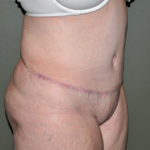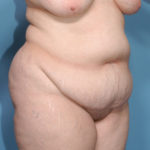
While patients almost always ask how long any surgery is (you can argue you are alseep, what does it matter), this is still an understandable question particularly for the waiting families who are not asleep. And in most cases, it is also fairly predictable since after years of doing similar procedures, the plastic surgeon should have a pretty good idea as to how long it takes. The importance of accurately predicting the length of the operation also has economic impact. Since most body contouring surgeries are not covered by insurance, there is a fee per time cost for the use of the operating room and the anesthesiologist. You need to know the time of the operation and the cost upfront.
Lengths of surgery time will certainly vary based on the plastic surgeon. A longer or shorter operative time doesn’t make one plastic surgeon better or worse than another. Every plastic surgeon operates at their own speed and comfort zone. So don’t compare plastic surgeons by time. A longer or shorter operative time doesn’t necessarily mean a better or worse result. As I always says…I don’t get any rewards for being fast…I only get rewards (and patient happiness) from a good result, regardless of the time it took to get there. Nobody has yet to tell me….’Doc, the result is terrible but it was really fast!’
With that thought in mind, here are some approximate operative times based on some of the most common bariatric body contouring procedures. Abdominoplasty/Panniculectomy 2 – 4 hours, Arm Lift 2 – 2.5 hours, Back Lift 1 -2 hours, Body Lift 4 – 6 hours, Breast Lift/Reduction 2 – 3 hours, Facelift 2 – 3 hours, and Thigh Lift 2 – 3 hours.
Also remember that operative includes other events than actual surgery. The measurement of operative time starts the second you walk into the operating room and doesn’t stop ticking until you are wheeled out on a stretcher. So events such as prepping and draping, positioning and turning you during surgery, and the application of dressings all counts as surgery time.
Dr. Barry Eppley
Indianapolis, Indiana



